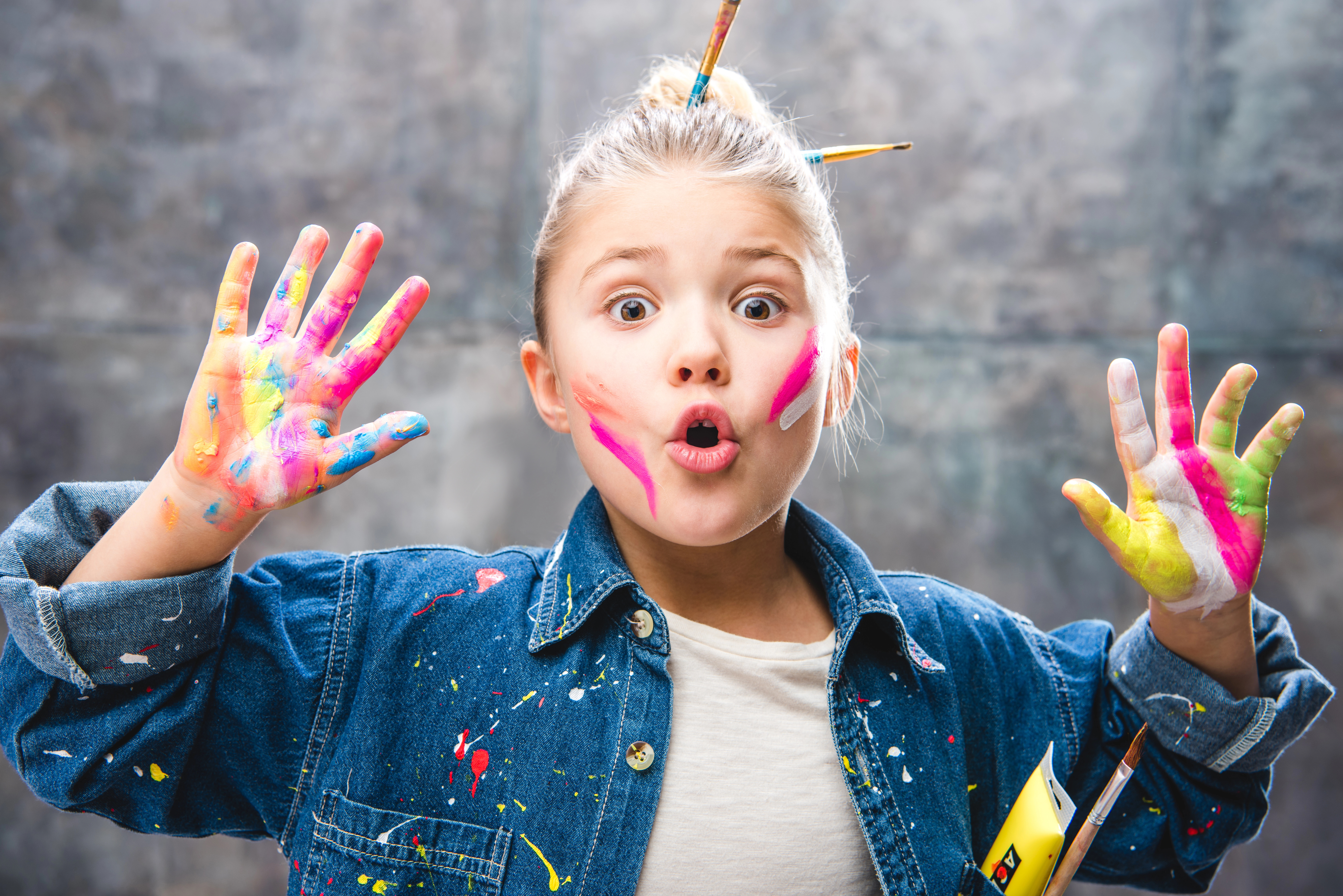
Everyone needs a hobby. Hobbies help us decrease stress, make new social connections, and learn new skills. This is equally true for children, whose lives are often structured or arranged for them, rather than allowing them time to explore their own interests and learn from them.
According to educator Pamela Myers, BsED, “Hobbies benefit children in many ways. It gives a child the opportunity to express themselves and discover who they are, ultimately building their self-esteem. They are also great educational tools.”
The question then becomes, what kind of hobby or activity is a good fit for your child? In my household, we tried several, with some not working and others sticking like glue. Fortunately, there are social, emotional, and intellectual benefits to a wide variety of hobbies that your kid (and maybe even you!) can get involved in.
Join a Team
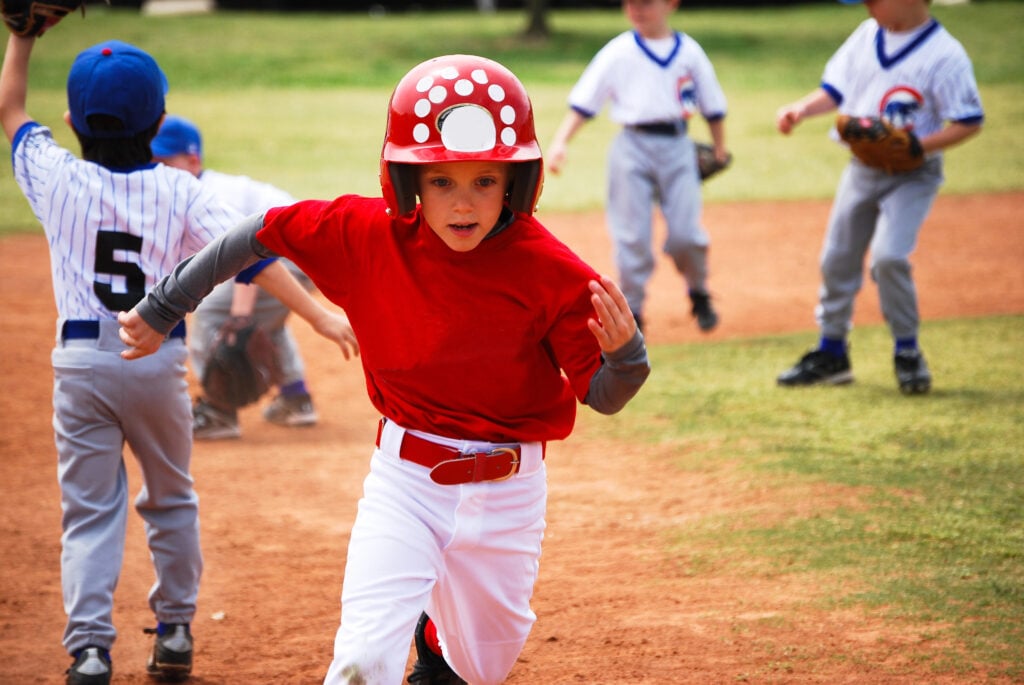
The first and most obvious hobby that a child can get involved in is team-based sports and activities. In a University of British Columbia study, lead author Eva Oberle, assistant professor in the school of population and public health, found that “extracurricular activities that allow children to establish meaningful relationships with their peers can support their positive mental health. Group activities like team sports may naturally do this.”
This isn’t limited to just sports, though. Team activities like Dance, Gymnastics, Guides or Scouts, and other clubs can provide kids with an opportunity to make new friends and learn about teamwork, winning and losing gracefully, and how social structures function. Many of the more physical activities get kids moving and teach them about perseverance and working towards a common goal.
Oh, also, they are really fun, which is a key component in keeping kids involved in any activity.
Learn How Things Grow
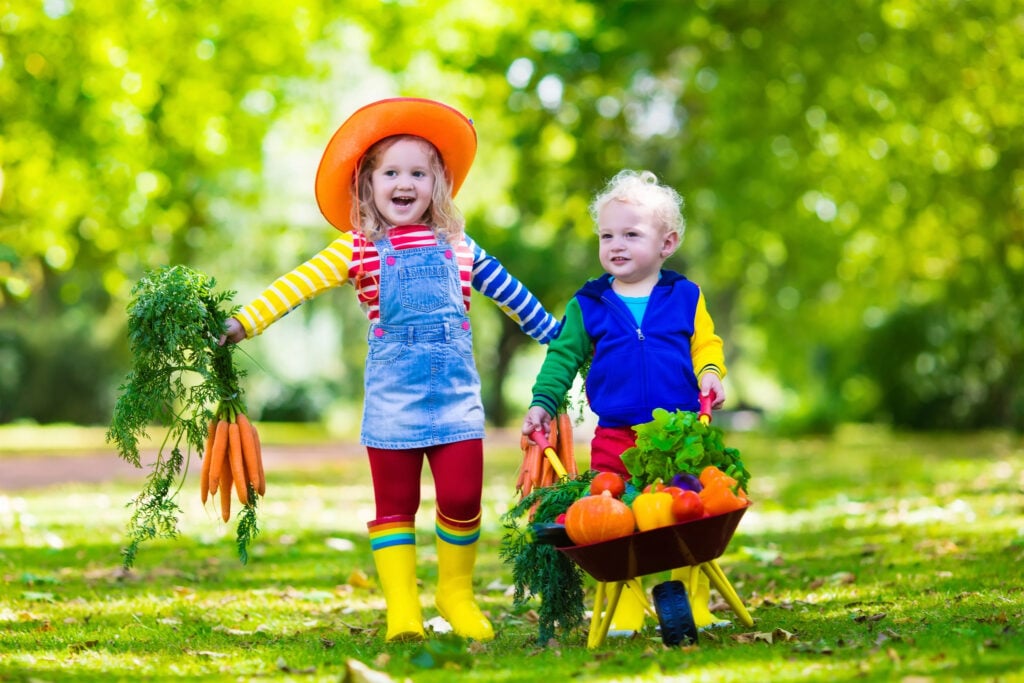
Kids love digging in the dirt, so why not make it into a hobby? According to the very appropriately named Kids Gardening organization, “Research confirms what we know in our experience and in our hearts. Gardening has a positive influence on many aspects of kids’ lives.”
Setting up a home, school, or community garden has numerous benefits, and for kids specifically, it can teach valuable lessons such as patience, the growth process, and even better nutrition. Gardening also provides kids with a calm sensory activity that shows real results. Checking in on plants every day and seeing how they grow makes kids feel like they have accomplished something, which boosts their self-confidence.
Creating a community or school garden also helps alleviate loneliness in children by providing them with a like-minded community in which to learn. Whether it’s a flower bed or a vegetable garden, kids feel empowered to take action and be part of the environment around them.
Get Physical!
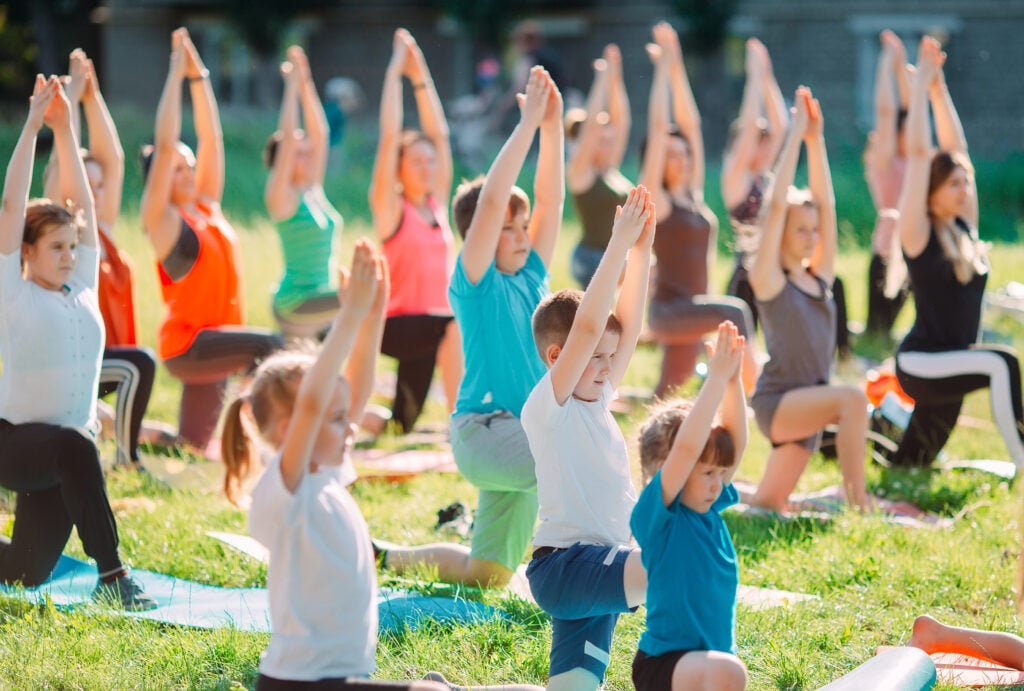
I’m sure most parents have had those moments when a kid needs to run around to “get their sillies out.” According to the CDC, engaging in physical activity and hobbies helps children develop attention and memory skills, build strong muscles, and improve endurance. They can significantly reduce the risk of depression and several chronic diseases, including type 2 diabetes and obesity.
Now this doesn’t mean that every kid should be out there running a marathon (though many runs offer kid or family routes). Still, activities like Yoga, for example, promote a healthy lifestyle, encourage calmness and serenity, and provide a good workout. Our very own Jaime Burnham is a children’s Yoga instructor who has written about the benefits of yoga for children and the best yoga resources for kids.
In addition to the physical health benefits, activities such as gymnastics teach teamwork and agility, biking is a great cardio workout that can open a kid’s eyes to the environment around them, and swimming can provide a full-body workout as well as a great safety tool.
Let Kids Build Their World
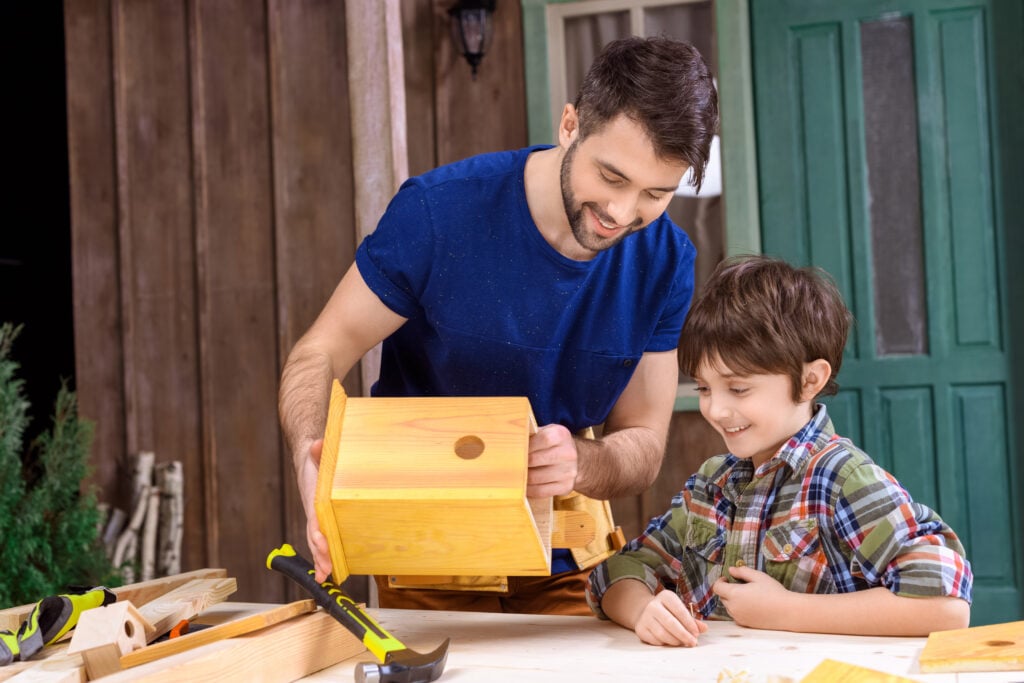
Creation and creativity are key components of any kid’s childhood, but certain hobbies can take it a step further. Hobbies like woodworking or building simple machines can teach kids critical thinking, problem-solving, and even physics. However, as parents, I think we all know that the favourite way to build things for kids is with toys like LEGO.
When I was a kid, playing with LEGO, I always had the most fun making my own creations out of the massive assortment of bricks in our “LEGO Bucket,” which lived under the couch. It instilled in me a lifelong love of building and skills that I have been able to transfer to many careers and relationships throughout my life. My kids have picked up on this, too, and we love building houses, boats, robots, and anything else we can think of.
According to therapists at the Children’s Wellness Center in the UK, playing with LEGO and building toys can enhance children’s cognitive functions, teach them to follow simple instructions, improve focus and concentration, and even help younger children learn about sharing and cooperation.
Wrap Them In Nature
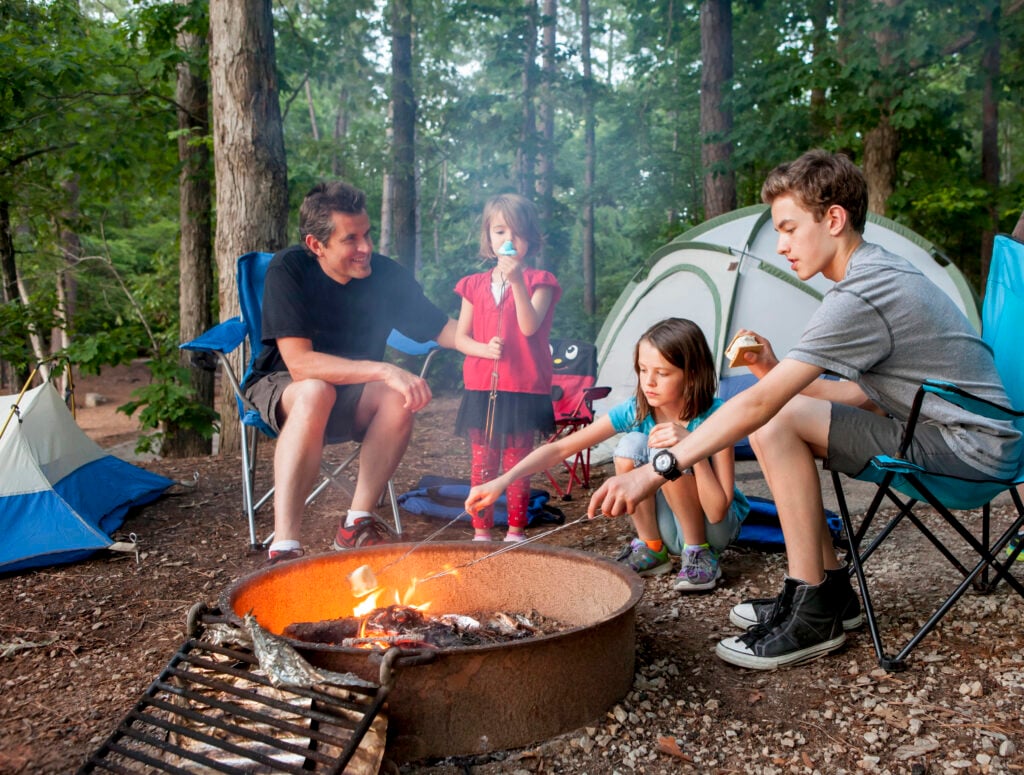
Richard Louv, author of the book Last Child in the Woods: Saving Our Children From Nature-Deficit Disorder, states, “As the young spend less and less of their lives in natural surroundings, their senses narrow, and this reduces the richness of human experience.”
According to research conducted by the Child Mind Institute, there are numerous benefits to getting kids into nature. There’s a lot of concern these days about screens and kids spending too much time indoors, so even something simple like hiking can give them a chance to get active, as well as provide a different, more fulfilling kind of sensory stimulation.
Activities like kayaking, camping, mountain biking, and even a nature-based treasure hunt all give your child a chance to think creatively outside a screen. This helps them develop confidence and self-assurance, as well as an appreciation for the world around them.
Find Their Artistic Flair
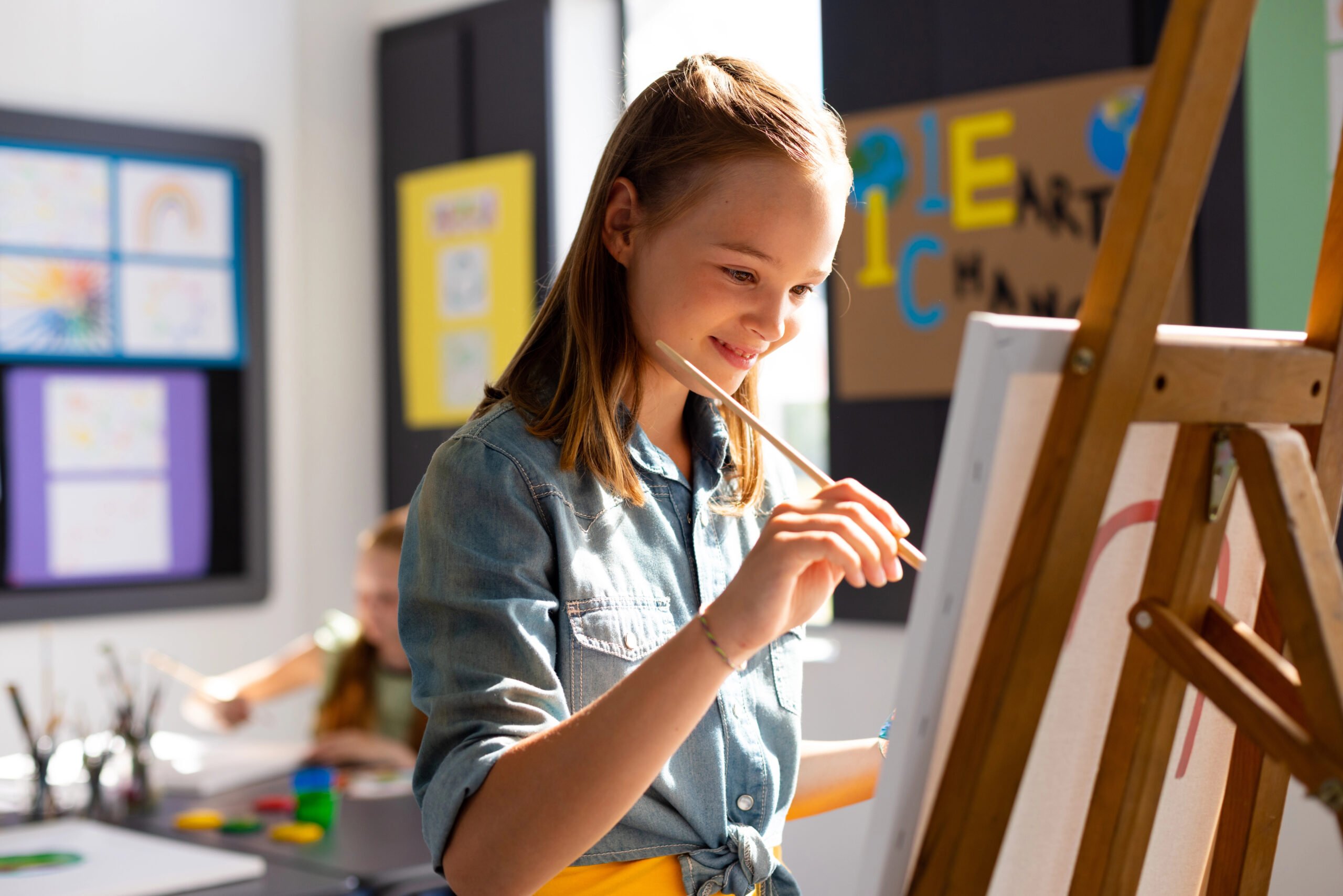
Art is all around us, and no one knows this better than a kid. Finger painting, jewelry making, and even sculpting are all regular activities in our home, and the results are pretty amazing. Dr. Kerry Freedman, Head of Art and Design Education at Northern Illinois University, notes in an article for PBS, “Children need to know more about the world than just what they can learn through text and numbers. Art education teaches students how to interpret, criticize, and use visual information, and how to make choices based on it.”
Art not only expands a child’s ability to express themselves, but it also teaches critical thinking, planning, and patience. One of the most essential aspects of artistic play is teaching kids that it’s ok to make mistakes and the benefit of trying again.
One of my family’s favourite artistic activities is visiting local museums and sketching the art on the walls. This not only teaches how to interpret and create artwork, but also has the added benefit of introducing students to art history, culture, and how art reflects the world at the time of the piece’s creation.
The Value Of Collecting
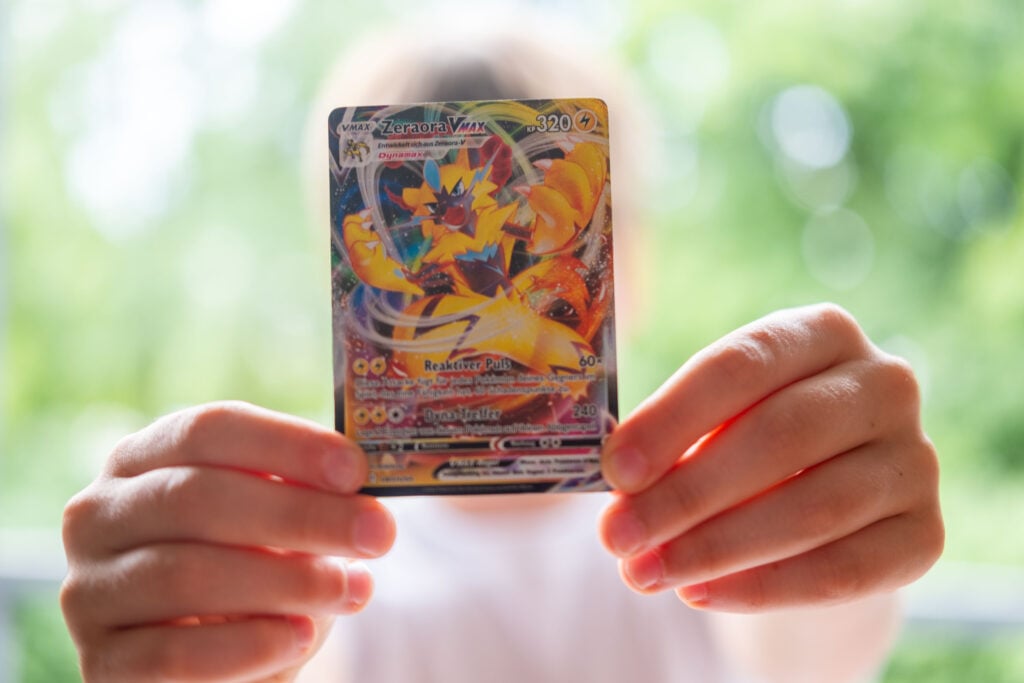
Have you ever noticed how every kid loves to collect rocks? There isn’t a parent I’ve ever met who doesn’t have a drawer or box full of stones and pebbles from various adventures. Turns out, there’s a reason for that. It’s a key to their sensory development, as well as teaching skills like counting, sorting, and even care and empathy.
Starting a collection with your child can unlock a range of valuable skills. Julia Heberle, associate professor of psychology at Albright College in Reading, Pennsylvania, notes that through collecting something like stamps, “Children, even young children, can accumulate a lot of organized, detailed expert knowledge.” This gives them more confidence and autonomy as they explore their collections.
Speaking of, collections such as books, gaming, sports cards, or even toys also provide a doorway via shared interest for your child into a new community and the potential to make friends and expand their social circle.
Cook Up Something Beautiful
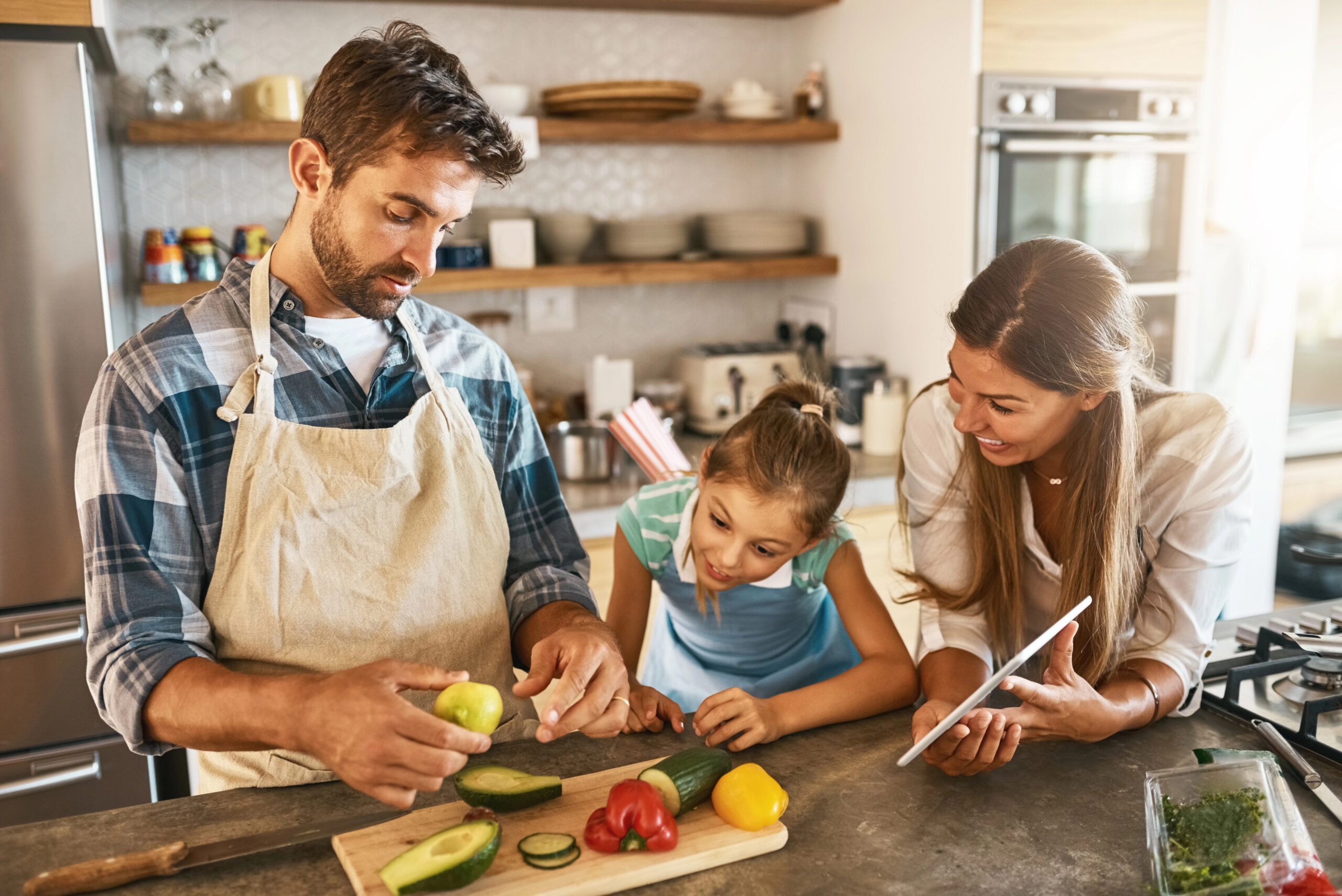
One of the easiest hobbies to get a kid interested in is cooking. Everyone has to do it, and getting kids involved in the creation and making of the food they eat is a great way to work around picky eaters.
Psychotherapist Dr. Luella Jonk says on Psychology Today, “time spent [cooking] in the kitchen is a compounding asset, whereas the drive-through is a depreciating asset. … you are also modelling what is slowly becoming a lost skill in this decade.”
Cooking teaches your kids not only that different tastes and ingredient combinations make foods great, but also provides an opportunity to learn about different cultures via their traditional dishes. Cooking also reinforces skills such as counting, sorting, and portioning, among others. Baking, meal prep, and dessert-making are all things that kids can get involved in and lead them down the road to new and exciting foods that you know they will actually eat.
Exercise The Brain
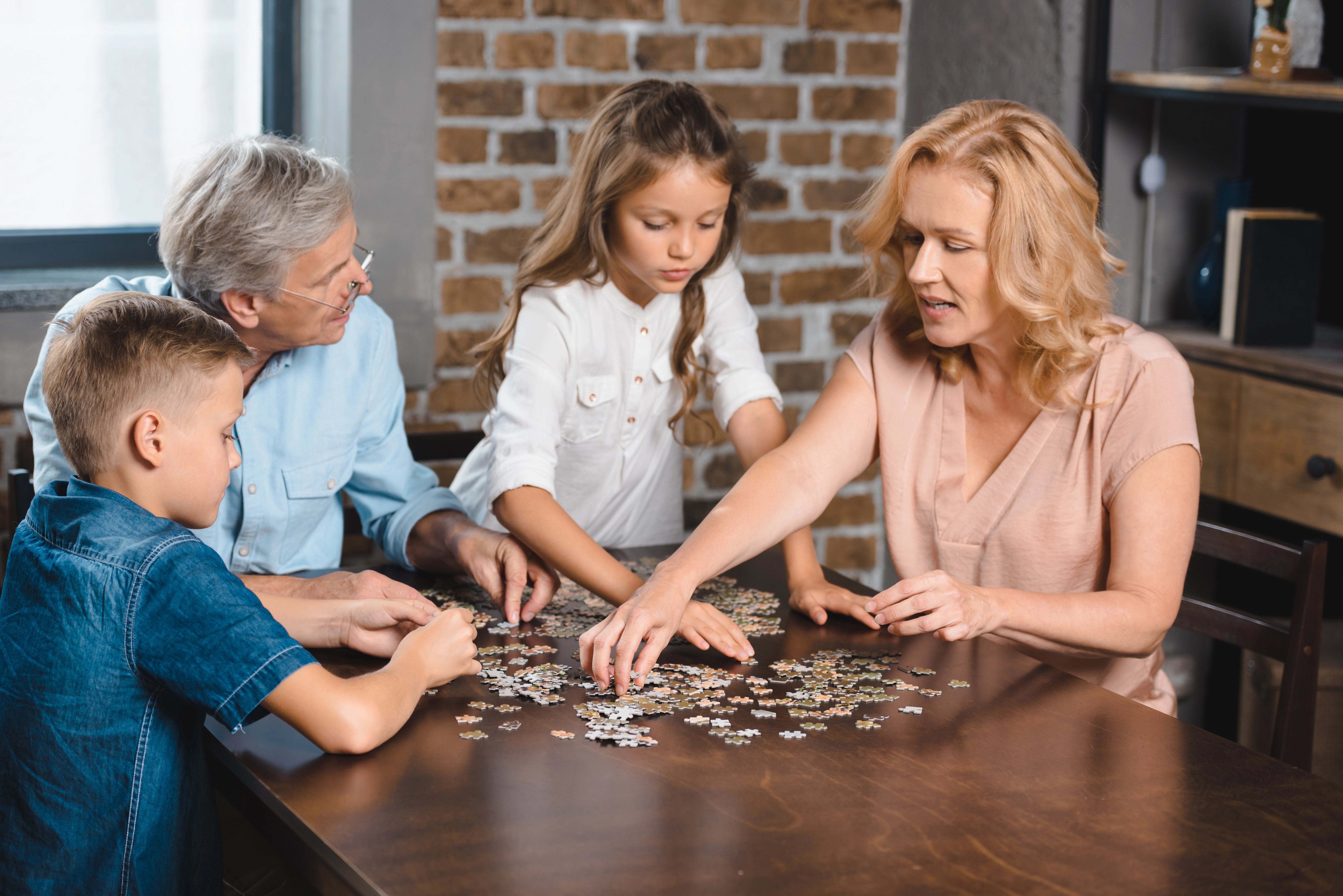
One of the simplest hobby areas to get kids into is activities that exercise the brain itself. Things like Reading and Writing may seem less like hobbies and more like homework at first. Still, once kids latch onto the imagination and creativity that these activities bring, they will lean more towards them for fun and reap the benefits in terms of brain activity.
Brain Exercise isn’t just limited to reading and writing. Activities such as puzzles, art, and games enhance a child’s cognitive skills. Dr. Robert Myers points out, “Children naturally learn through play. Play involves the whole child in the experience and thus intensifies the learning experience.”
Creating a Family Game Night is a great way to dip into these skills. There are plenty of educational and fun board or card games available that teach kids about logic, fair play, and critical thinking, all while doing so in a way that makes learning enjoyable.
Get Involved In Their Environment
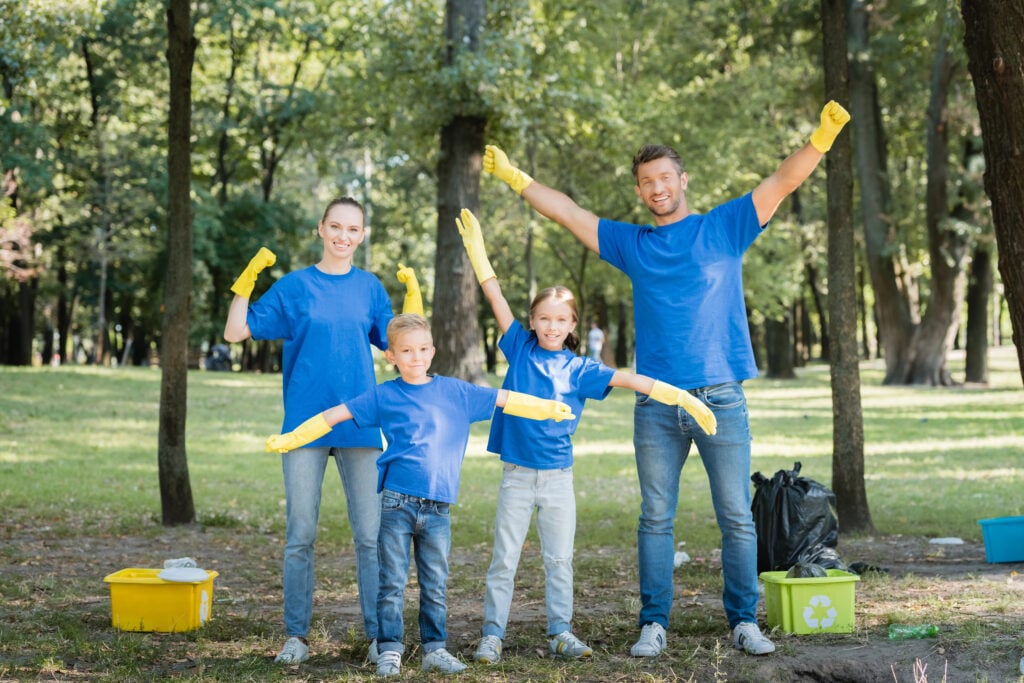
According to Stanford University studies for the North American Association for Environmental Education, “environmental education has led to many positive impacts, from improving academic performance, to enhancing critical thinking skills, to developing personal growth and life-building skills, including confidence, autonomy, and leadership. In addition, several studies showed that environmental education increased civic engagement and positive environmental behaviors.”
Things like environmental awareness and recycling may not seem like hobbies that a kid would naturally gravitate towards, but there are many activities within the environmental realm that kids love. For example, “upcycling,” the process of making something that’s old and beat up into something new. Something as simple as taking old boxes and making a fort shows kids that there is value in the materials if they are willing to use their imagination.
There are a myriad of other environmental hobbies and activities that kids can get involved in to learn more about the world around them and how they can help preserve it for the future. This gives kids a sense of ownership while showing them that these things are less about chores and more about building, creating, and celebrating the environment we all share.
